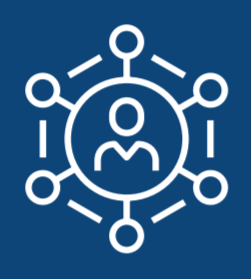Equality, Diversity and Inclusion Toolkit
Welcome to the Research Support Service equality, diversity and inclusion (RSS, EDI respectively) toolkit. This toolkit was published by the former Research Design Service (RDS) East Midlands in July 2022. It was updated in July 2024 to incorporate the NIHR’s new Research Inclusion Requirements. These apply to calls for domestic awards opening on or after 27 November 2024. This is an interim measure, pending the development of an updated Research Support Service (RSS) Toolkit for Research Inclusion, launching in 2025. The RSS, which replaces the RDS, offers free and confidential advice on the development of funding applications and throughout the research pathway. To access RSS support, visit our website.
This resource has been developed to support researchers and research advisers to better understand how to embed equality, diversity and inclusion (EDI) in research design and to meet the National Institute for Health and Care Research (NIHR) Research Inclusion requirements. It is also a useful resource for researchers developing inclusive research applications for other funders.
As of 27 November 2024, the NIHR requires all applicants for domestic programme awards to detail how they will ensure inclusion is considered and built into the whole research lifecycle. The guidance formalises previous good practice expectations with respect to inclusion. Reasonable and justified costs will be provided by NIHR to enable researchers to conduct inclusive research.

Data analysis and presentation
- How will you analyse and report equality, diversity and inclusion characteristics?
- Have diverse perspectives been incorporated to support the interpretation of results?
- How will you describe participants’ equality, diversity and inclusion characteristics?
What do equality, diversity and inclusion mean?
Equality, diversity and inclusion (EDI) are part of the core business of the NIHR. They relate directly to the NIHR’s operating principle of inclusion:
“We are committed to equality, diversity and inclusion in everything we do. Diverse people and communities shape our research, and we strive to make opportunities to participate in research an integral part of everyone's experience of health and social care services”
NIHR definitions
| Equality1 |
|
| Diversity |
|
| Inclusion |
|
| Equity |
Trying to understand and give people what they need to achieve their potential; promoting notions of fairness, justice, entitlements and rights. |
1 These definitions are taken from NIHR’s Research Inclusion Strategy, 2022-2027
Why ‘research inclusion’?
We use research inclusion to highlight NIHR’s mission of addressing inequalities related to various characteristics. Beyond the protected characteristics of the Equality Act 2010, we include disparities linked to socio-economic status, geographic location, and access to health and care. Considering all relevant characteristics is key to our goal of improving the nation's health and wealth through research. At NIHR, research inclusion means applying an inclusive lens throughout the research process. We aim to fund research that:
- tackles long-standing structural barriers that hinder certain groups from contributing to, participating in, and delivering research
- reduces health and care inequalities
- is inclusively designed and analysed, with methods suited to the target participants; and
- addresses the needs of diverse, under-served, under-represented groups, or those with the highest needs.
What aspects of inclusion does this toolkit cover?
This toolkit recognises the inequalities some people face due to a number of shared characteristics. In this toolkit, we refer to these as demographic characteristics. Included in this term are the nine characteristics protected under the Equality Act 2010 (the ‘protected characteristics’):
|
|
In addition, this toolkit recognises other dimensions, including:
- Socio-economic status
- Geography
- Access to health and care
- Neurodiversity
- Literacy
- Caring commitments
- Those under-served by research (see NIHR INCLUDE resources)
This is not an exhaustive list. When we refer to demographic characteristics in the rest of this toolkit, we use this as an umbrella term to reflect any groups who may be under-represented, under-served, or are relevant for specific consideration within your research context.
We recognise that language and terminology related to our identities is very personal and that not everyone will relate to the terms used in this document. We have sought to be as inclusive as possible and informed by current debates. For example, we avoid using the term ‘BAME’ (Black, Asian and Minority Ethnic) as a shorthand for all groups who are not White or White British because it can fail to recognise the differences between groups, reducing them to an acronym. When quoting from the work of other researchers or organisations, we honour the language that they use, even if that might sometimes be dated or at odds with how others would self-define.
In the rest of this toolkit, we focus on how to make health and social care research more inclusive by considering eight aspects of the research process.
Last updated: March 2022
Acknowledgments
This toolkit has been developed with valuable and broad input from the RDS EDI Group and other RDS and NIHR colleagues, researchers and public contributors. Particular thanks go to our public contributors, Pam Rees, Cecily Henry, Beauty Tshuma and to RDS East Midlands’ Patient and Public Involvement Lead, Naina Patel, for their commitment to and support of this work. Our thanks also go to the four RDS regions (East Midlands, North West, South East and West Midlands) which piloted an earlier version of this toolkit and to the colleagues who shared their views and helpful suggestions for improvement in focus groups. Thanks go to NIHR Research Inclusion team for their input with interim updates in June 2024. A huge thank you also goes to Louise Halbert at RDS East Midlands for helping to prepare the web-based version of the toolkit, in conjunction with James Gaunt from Webfuel and Charlie Franklin.
The RDS/RSS EDI toolkit was authored by Dr Rebecca Barnes and Dr Chris Newby on behalf of the RDS EDI working group.
Created: January 2022 Last Updated: June 2024







